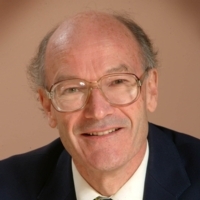
Prof Paul Ekins
Research summary
Paul Ekins' academic work focuses on the conditions and policies for achieving an environmentally sustainable economy, and he is an authority on a number of areas of energy-environment-economy (E3) interaction and environmental policy, including: sustainable development assessment methodologies; resource productivity; sustainable energy use; E3 modelling and scenarios; the adjustment of national accounts to take account of environmental impacts; environmental economic instruments and ecological tax reform; sustainable consumption; and environment and trade. He is the author of numerous papers, book-chapters and articles in a wide range of journals, and has written or edited twelve books, including Global Warming and Energy Demand (Routledge, 1995); and Economic Growth and Environmental Sustainability: the Prospects for Green Growth (Routledge, London, 2000). His most recent books of which he is editor or co-editor are Understanding the Costs of Environmental Regulation in Europe (Edward Elgar, Cheltenham, 2009); Trade, Globalization, and Sustainability Impact Assessment: A Critical Look at Methods and Outcomes (Earthscan, London, 2009); Carbon-Energy Taxation: Lessons from Europe (Oxford University Press, Oxford, 2009); Hydrogen Energy: Economic and Social Challenges, (Earthscan, London, 2010); Environmental Tax Reform: a Policy for Green Growth (Oxford University Press, Oxford, 2011); Energy 2050: the Transition to a Secure, Low-Carbon Energy System for the UK (Earthscan, London, 2011); Global Energy: Issues, Potentials and Policy Implications (Oxford University Press, Oxford, 2015)
Teaching summary
From 1996 to 2002 Paul Ekins taught modules on Environmental Policy, Environmental Impact Assessment and Sustainable Development at both graduate and undergraduate level at Keele University. At UCL he has contributed lectures on climate change policy to a number of MSc or MRes courses, including MRes in Energy Demand Reduction and the Built Environment, MSc in Global Health and Development and MSc in Built Environment: Environmental Design and Engineering. Since September 2013 he has contributed to three modules on UCL's Masters in the Economics and Policy of Energy and the Environment, of which he was the architect. He supervises a large number of PhD students. He has a Higher Education Teaching Certificate (Level III/SEDA [Staff and Educational Development Association]).
Education
Birkbeck College
PhD, Economics | 1996
Birkbeck College
MSc(Econ), Economics | 1987
University College London/Imperial College
BSc, Electrical Engineering | 1971
Biography
Paul Ekins has a Ph.D. in economics from the University of London and is Professor of Resources and Environmental Policy at and Director of the UCL Institute for Sustainable Resources, University College London. He is also Deputy Director of the UK Energy Research Centre, and the UKERC Co-Director leading on its Energy Resources theme, with research publications on low-carbon futures, fossil fuels and hydrogen. In addition, he is a member of UNEP's International Resource Panel and a Fellow of the Energy Institute. He is a member of Ofgem’s high-level Sustainable Development Advisory Group, and was Chairman of the Government-funded National Industrial Symbiosis Programme (NISP), the UK’s most successful programme to improve resource productivity. From 2002-2008 he was a Member of the Royal Commission on Environmental Pollution. From 1997-2005 he was a specialist adviser to the Environmental Audit Committee of the House of Commons, from 2003-2007 was a Member of the Government’s Sustainable Energy Policy Advisory Board, and in 2007 was a Specialist Adviser to the Joint Parliamentary Committee on the Climate Change Bill. He has extensive experience consulting for business, government and international organisations, which has included over 50 projects and consultancies over the last ten years, and many advisory positions. He has also been a consultant to the Government’s Sustainable Development Commission, and an adviser to the UK Government's Advisory Committee on Business and the Environment and Round Table on Sustainable Development, and has been a frequent contributor to His Royal Highness the Prince of Wales' annual course for senior executives on business and the environment at the University of Cambridge, and the Cambridge Programme for Sustainability Leadership. Since 2003 he has been a member, and is now Chairman, of the Judging Panel, UK Ashden Sustainable Energy Awards, and he is on the Judging Panel of the Rushlight and Rosenblatt New Energy Awards. He was a member in 2010-11 of two Ministerial Advisory Panels, on the Green Deal (DECC) and on the Natural Environment White Paper (DEFRA), and is on the Advisory Board of DECC's Energy Efficiency Deployment Office. In 2011 he was appointed Vice-Chairman of the DG Environment Commissioner’s High-Level Economists Expert Group on Resource Efficiency and a member of the European Commission's high-level European Resource Efficiency Platform. Since 2015 he has been a member of the European Commission's High-Level Panel on the European Decarbonisation Pathways Initiative. He is currently Co-Chair of UN Environment's sixth edition of the Global Environmental Outlook (GEO-6)and of the Green Growth Knowledge Platform (GGKP)'s Research Committee on Natural Capital. In 1994 Paul Ekins received a Global 500 Award ‘for outstanding environmental achievement’ from the United Nations Environment Programme. In 2015 he was awarded an OBE in the UK's New Year's Honours List for services to environmental policy.